Why Your Dog Keeps Sitting Down While Walking: 4 Possible Reasons

Updated on
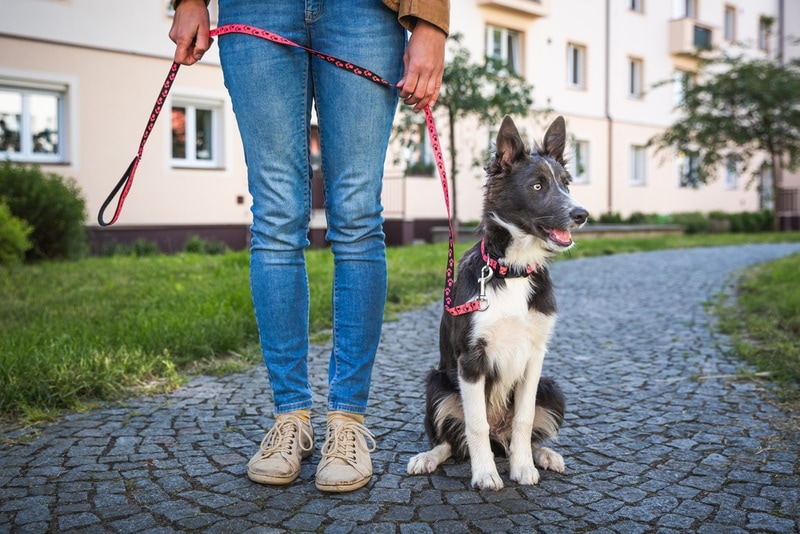
Owning a dog comes with a load of joyous moments, right from playing fetch to snuggling on the couch. But sometimes, our furry companions exhibit unusual behavior that leaves us puzzled.
One such peculiar behavior is when your dog keeps sitting down while walking. If you’ve been scratching your head wondering why, this blog post will shed some light on four main reasons behind this behavior.
The 4 Reasons Why Your Dog Keeps Sitting Down While Walking
1. Physical Discomfort or Pain
Your dog sitting down while walking could be a red flag indicating physical discomfort or pain. This is often the first thing you should rule out when you notice your furry friend acting unusually. Common causes of pain include arthritis, hip dysplasia, or even an injury that isn’t readily visible.
Also, keep an eye out for any signs of discomfort like limping, whimpering, or reluctance to move certain parts of the body. It’s always recommended to consult with a vet if you suspect your dog might be in pain.
2. Fear or Anxiety
Fear or anxiety could also be the culprit behind your dog’s unusual habit of sitting down during walks. This could be due to a variety of factors, including a new environment, loud noises, or unfamiliar people or animals.
Dogs, just like humans, can feel overwhelmed, and their response might be to simply sit down and refuse to move. Using calming strategies or working with a professional dog trainer may be helpful in these situations.
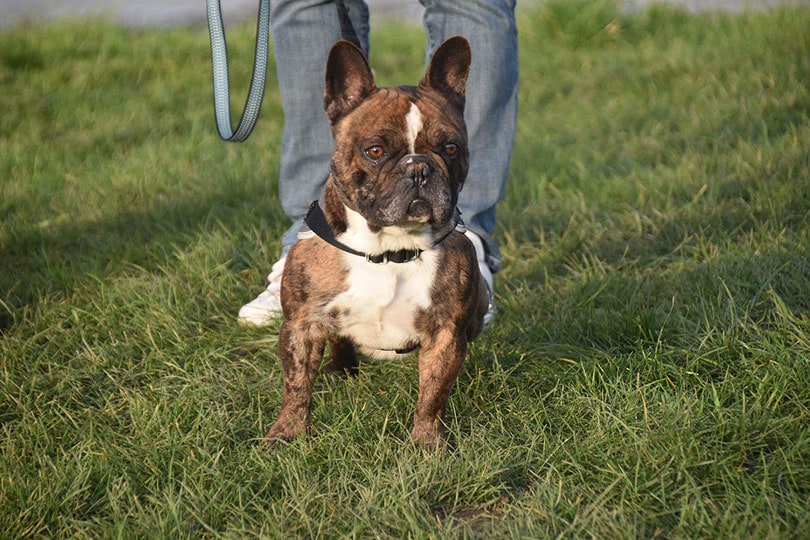
3. Lack of Proper Training
Yes, you’ve guessed it right. Sometimes, the issue can be as simple as a lack of proper training. Dogs may not inherently understand the concept of a leisurely walk. For them, a walk could mean a chance to sniff every single bush or mark every tree on the route.
So when your dog suddenly sits down during a walk, it might be trying to tell you it wants to do something else. You can solve this by teaching your dog how to behave during walks using positive reinforcement strategies.
4. Stubbornness or Asserting Dominance
Last, your dog might simply be showing its stubborn side. Dogs are known to have distinct personalities, and some might try to assert their dominance by controlling the walk. This behavior could also stem from boredom if the same walking route is followed every day.
To rectify this, you can try introducing a bit of unpredictability in your walking route or time. Doing so will not only keep your pup engaged but also provide the mental stimulation it needs. You may find that it helps with problems like acting out or being destructive.
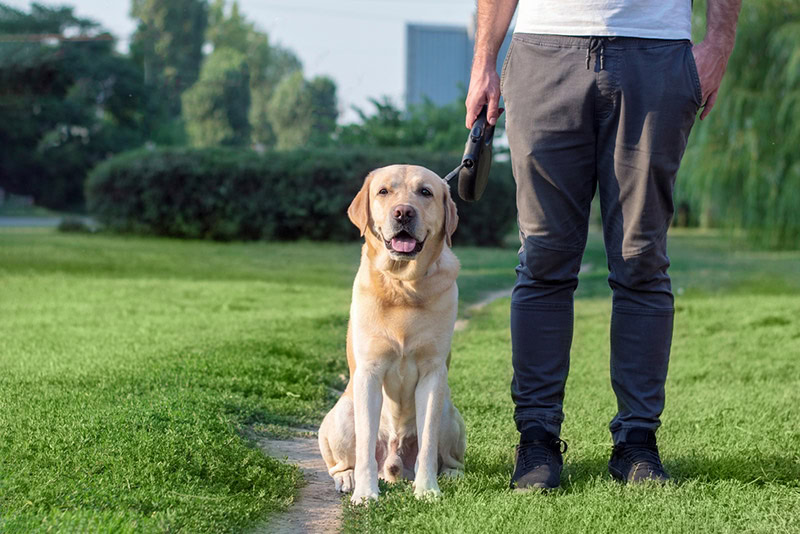
Tips for Fun Walks and Healthy Pups
Walking your dog should be an enjoyable experience for both of you. It’s a great way for your furry friend to burn off energy and for you to get some exercise, too! To keep your walks fun and ensure your dog stays healthy and happy, here are some tips to consider:
Keep the Leash Comfortable
A leash is more than just a tool to control your dog—it’s also a line of communication. Having a leash that is comfortable for both you and your dog can make walks more enjoyable. Make sure it’s not too tight, as it can cause your dog discomfort or make them feel restrained.
Mix Up Your Route
Just as you might get bored walking the same route every day, so might your dog. Changing your walking route introduces your dog to new scents and sights, keeping their mind stimulated and engaged. Exploring different areas also gives them an opportunity to socialize with other dogs and people. Give it a try!
Play Interactive Games
Why not turn your walks into playtime? Consider bringing along a toy or ball and incorporating interactive games during your walks. This not only keeps your dog entertained but also helps strengthen the bond between you. Remember, playtime is a great source of exercise for your dog and can help burn off excess energy.
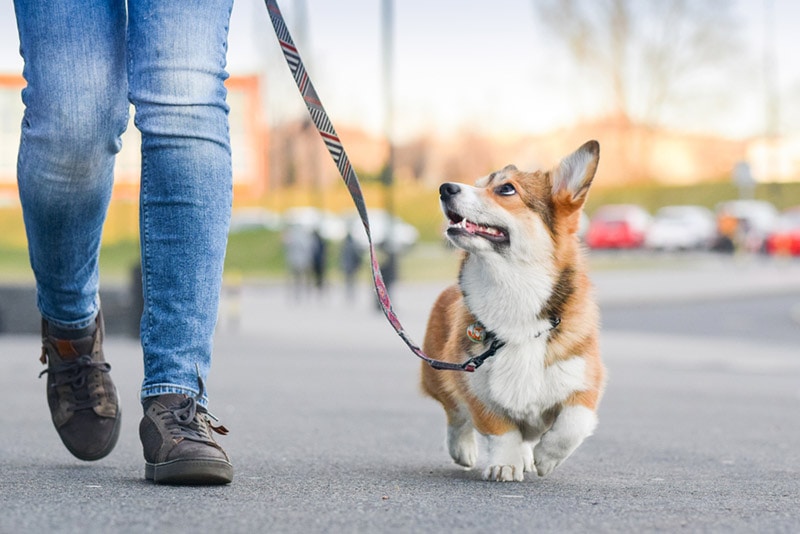
Practice Positive Reinforcement
Reward your dog for good behavior. When they walk nicely without pulling on the leash or sit calmly when asked, reward them with treats, praise, or a favorite toy. This encourages them to repeat the good behavior.
Take Breaks
Don’t rush your walk; allow your dog to sniff, explore, and take breaks. This time is not just about physical exercise; it’s also about mental stimulation. Allowing your dog to investigate their surroundings contributes to their overall happiness and well-being.
Regular Vet Checks
Regular vet visits are crucial for your dog’s health, as they help catch any potential health problems early. If your dog is sitting down during walks, a vet can rule out any medical issues and provide advice tailored to your pup’s needs.
Remember, each dog is unique, and what works for one might not work for another. Your dog might love long, leisurely walks, or it might prefer short, fast-paced ones. Some might love to socialize; others might prefer quieter routes. The key is to understand your dog’s preferences and needs, ensuring each walk is a fun and healthy experience.
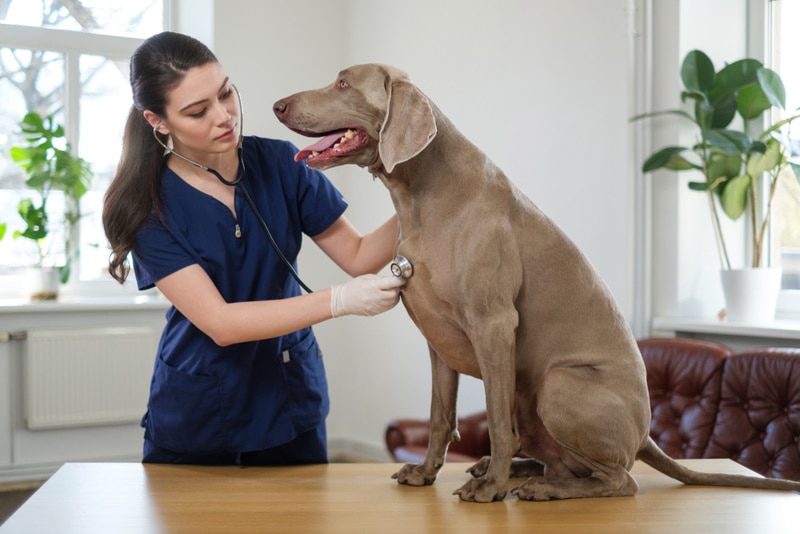
Conclusion
While it can be concerning when your dog sits down frequently during walks, it’s important to remember that this behavior isn’t necessarily a sign of a serious problem. Understanding the possible reasons can go a long way in helping you address the issue appropriately.
So the next time your furry companion sits down mid-walk, keep these points in mind. By understanding the root cause, you can help make your dog’s walk an enjoyable and healthy part of their day.
Featured Image Credit to ubaru, Shutterstock











